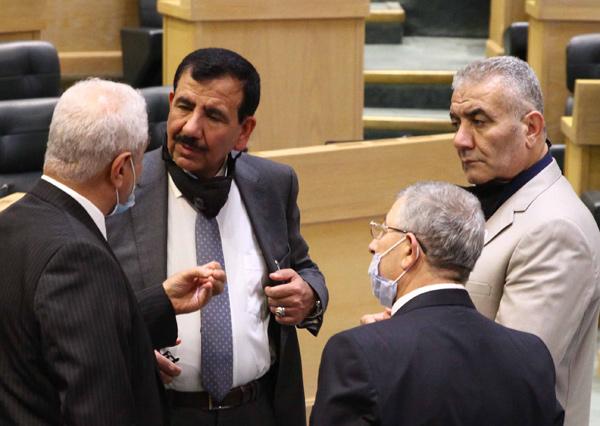- Local News
- Web-2021-02-17 | 03:28 pm

Lawmakers on Tuesday continued deliberations over the 2021 state budget law and budgets of independent public institutions.
During the Lower House session, headed by Speaker Abdulmunim Oddat, MP Firas Qudah said that the 2.5 per cent growth rate mentioned in the budget is "exaggerated”, criticising the government’s reliance on the sales tax and high share of pensions and general debt that both combined comprise some 30 per cent of the budget.
Deputy Zeid Otoum said that the difficult financial situation in the Kingdom is a result of successive governments’ failure to implement a fiscal policy instead of only relying on taxes and "citizens’ pockets”, the Jordan News Agency, Petra, reported.
MP Firas Ajarmeh, who delivered a speech on behalf of the Shaab (people) bloc, voiced the bloc’s rejection of having two budgets, calling on the government to cancel commissions rather than merging them.
He also urged the government to refer only one draft budget for all public institutions.
Lawmaker Muhammad Shatanawi said that the figures mentioned in the budget did not show applicable and successful ways to address major problems such as poverty and unemployment.
Deputy Shadi Freij said that the rise in accumulated debt to JD27 billion is "a worrying sign” that requires searching for successful solutions to limit these increases.
Lawmaker Ghazi Sarhan called for "seriousness” in enacting administrative reforms and developing the public sector performance, in addition to getting rid of red tape and reconsidering some laws that hinder growth and development.
MP Rima Omoush said that excluding the debts of the Social Security Corporation from the general debt raises a question about the fate of Jordanians’ savings and investments, wondering how international finance institutions agreed on such a thing.
Lawmaker Ali Ghzawi called for directing foreign grants and support to establishing investments in development projects, refusing any plans to increase taxes and fees under any condition.
Deputy Omar Zyoud wondered about the government’s plan to deal with the COVID-19 pandemic, especially that the budget assumed the return of normal life









